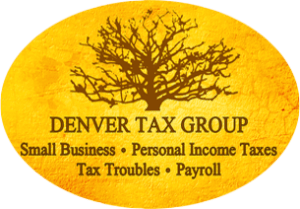As business owners, navigating the terrain around taxation is not just a necessity but a strategic imperative. In the maze of tax laws and regulations, it is often difficult to know the difference between tax planning and tax strategy. While these terms might seem interchangeable, understanding their nuances can profoundly impact your financial health and organizational success.
The professional team at Denver Tax Group can help you navigate the difference between tax planning and tax strategy. We focus on providing accurate advice and preparation that will put you on your way to financial freedom.
Tax Planning: The Foundation of Financial Sense
Tax planning is akin to laying the groundwork for good financial judgment. It involves analyzing your financial situation to optimize tax efficiency while ensuring compliance with legal obligations. At its core, tax planning is about anticipating your tax liabilities and structuring your financial affairs in a manner that minimizes your burden within the confines of existing laws and regulations. When understanding the difference between tax planning and tax strategy, you’ll want to know the key concepts.
Key Considerations in Tax Planning
- Legal Compliance: Being aware of ever-evolving tax laws and regulations is important. Failure to comply can result in penalties and reputational damage to your business.
- Cash Flow Management: Effective tax planning entails managing cash flows to ensure you have the necessary resources to meet tax obligations while supporting business operations and growth initiatives.
- Entity Structure Optimization: Choosing the right legal structure for your business. Whether you are a sole proprietorship, partnership, corporation, or LLC, each can significantly impact your tax liability. Evaluate the pros and cons of each structure and select the one that aligns with your long-term objectives.
- Timing of Income and Expenses: Strategically deferring income or accelerating deductible expenses can optimize your tax outcomes in a given financial year.
- Maximizing Deductions and Credits: Leveraging available deductions and tax credits from business expenses to research and development credits and exploring all avenues to reduce taxable income is always a smart move.
- Retirement and Succession Planning: Tax planning extends beyond the operational realm to encompass retirement and succession planning. Implementing tax-efficient strategies for wealth transfer and exit planning is essential for preserving your legacy and minimizing tax responsibility.
Common Pitfalls in Tax Planning:
When understanding the difference between tax planning and strategy, there are some challenges. Despite its importance, businesses often overlook critical aspects of tax planning, leading to missed opportunities and increased tax liabilities such as:
- Procrastination: Delaying tax planning until the eleventh hour limits your ability to implement effective strategies. Being proactive gives you the ability to take advantage of tax-saving initiatives.
- Lack of Documentation: Insufficient record-keeping and documentation keep you from taking substantial deductions and credits and increase the risk of IRS scrutiny or rejection of tax benefits.
- Failure to Seek Professional Advice: Tax laws are complex and subject to interpretation. Engaging qualified tax professionals, such as the Denver Tax Group, ensures access to specialized knowledge and tailored solutions.
Tax Strategy: Charting the Course for Long-Term Tax Optimization
With the difference between tax planning and tax strategy, you must consider how creating a game plan can help you long term. While tax planning focuses on immediate tax liabilities, tax strategy encompasses a broader, more holistic approach to tax optimization. It involves aligning your objectives with tax considerations to drive value and competitive advantage.
Key Components of Tax Strategy:
- Long-Term Planning: Tax strategy extends beyond the current fiscal year, encompassing multi-year planning that aligns with your business lifecycle stages and objectives.
- Risk Management: Identifying and mitigating tax-related risks involves assessing the potential impact of legislative changes, regulatory developments, and judicial precedents on your tax position.
- Innovation and Adaptation: Innovation and adaptation in response to changing business dynamics and evolving tax landscapes may involve restructuring operations, leveraging emerging tax incentives, or exploring new markets to optimize tax liability.
- Tax Advocacy and Compliance: Proactively engaging with policymakers, industry associations, and regulatory bodies and advocating for favorable tax policies can help overall, and ensuring compliance with evolving regulatory requirements will minimize your risk.
Common Oversights in Tax Strategy:
Despite its strategic significance, businesses often overlook critical aspects of tax strategy. Because of a lack of understanding of the difference between tax planning and tax strategy, you might undermine a good strategy’s potential for value creation. Some common oversights include:
- Silos and Fragmentation: Fragmented decision-making and siloed tax planning efforts can impede your tax strategy implementation. Tax considerations should be built into your overall business strategy for alignment across areas.
- Short-Term Thinking: Focusing solely on short-term tax savings may compromise long-term value creation and sustainability. A balanced approach that considers both immediate tax optimization and broader business objectives is essential.
- Lack of Scenario Analysis: Failure to conduct scenario analysis and sensitivity testing can result in suboptimal tax strategies. Anticipating various economic, regulatory, and competitive scenarios allows for proactive risk management and contingency planning.
Denver Tax Group for Understanding the Difference Between Tax Planning and Tax Strategy
While the ideas are intertwined, understanding the differences between tax planning and tax strategy means knowing how they serve distinct purposes and require different approaches. Tax planning addresses immediate tax liabilities through proactive management and optimization of financial affairs, while tax strategy encompasses a broader, more holistic approach aligned with long-term business objectives. Let Denver Tax Group help you understand the distinctions between the two and avoid common pitfalls with confidence. Contact us for a consultation today!
Denver Tax Group
Denver Tax Group, located in Aurora, Colorado, focuses on our client’s long-term growth while providing a wide array of services for your taxes. We believe a strong foundation is the key to financial freedom. Clear communication between the client and the tax professional, accurate preparation that we stand behind, and tax advice that will place you and your family on track for a strong financial future! We offer different services to prepare you for the years ahead. Learn more about our services or contact us now to schedule your appointment at 303-333-0363.

